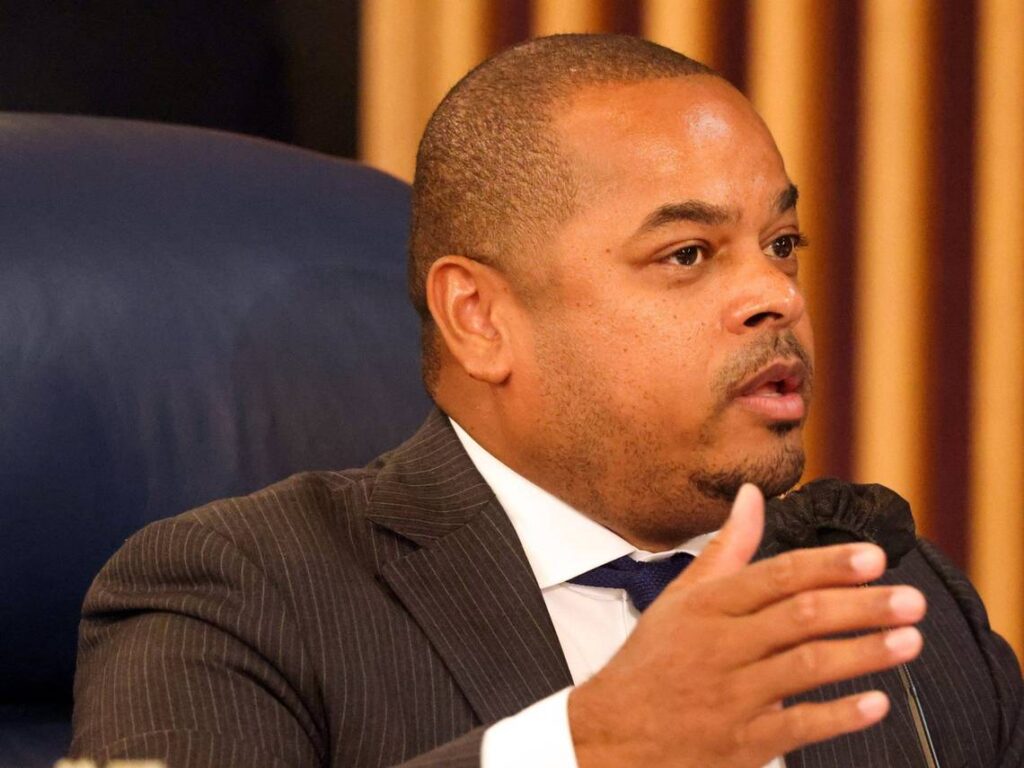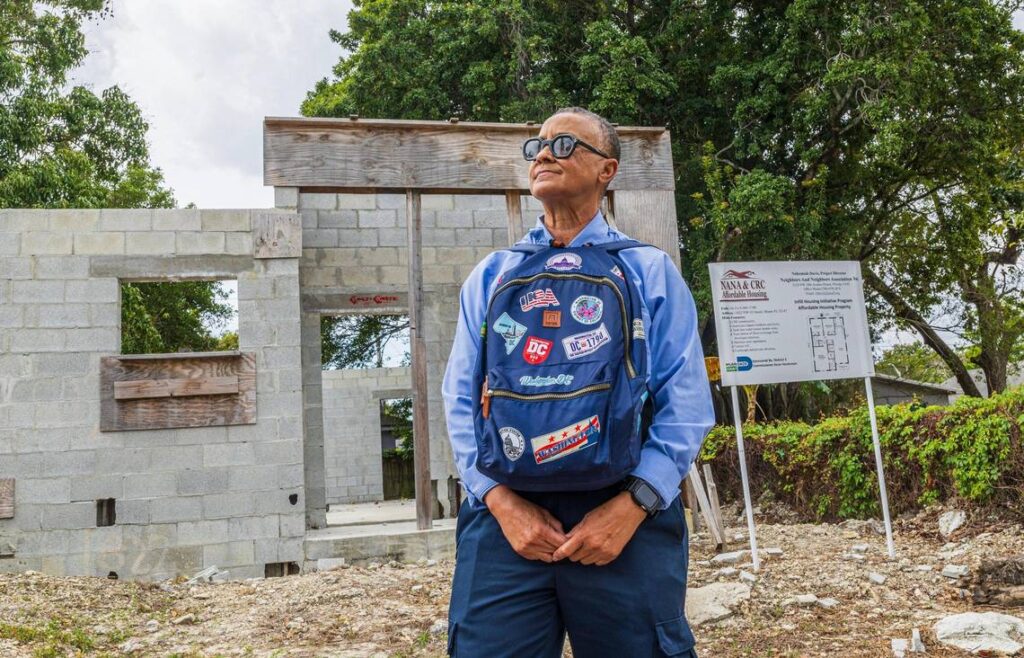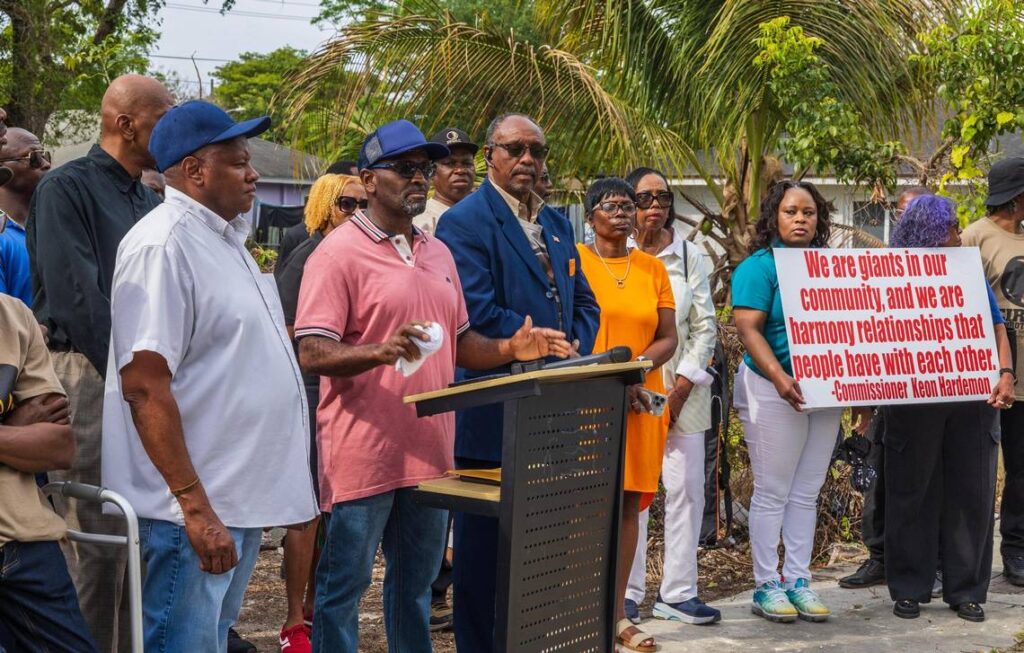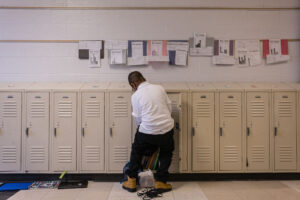Jeffery Johnson has been waiting to buy a home for nearly a decade. When the 58-year-old learned about a nonprofit’s program to sell affordable homes to low-income families in Liberty City, he filled out the paperwork and sent it to a lender in 2017. But there have been a lot of starts and stops: After getting approved, he expected to move into a home near Northwest 64th Street and 17th Avenue in 2020. Then the pandemic hit. In that time, the cost of the home increased from $205,000 to more than $300,000, he said. And to top it off, he had to reapply for preapproval two more times, eventually asking a relative to join him in the process so he could qualify for a loan.
Johnson, who works for the county’s Water and Sewer Department and lives in a public housing project, said he’d drive by the home as it was getting built and noticed work had stopped. “We presented the lenders with paperwork and everything,” he said. “We didn’t hear anything from them anymore. So right now, I ride by 17th Avenue, and the home is still in that state.”
And now, there’s another problem: a feud between the nonprofit’s executive director, Leroy Jones of the Neighbors and Neighbors Association, and County Commissioner Keon Hardemon, whose district is home to 30 such properties that have been set aside for housing.
The nonprofit bought the land from the county, which periodically sells off its so-called “surplus” lots so they can be turned into housing with price caps aimed at making real estate more affordable. Developers can purchase the lots for as low as $10 but can’t sell the homes they build for more than what the county dictates, a figure currently capped at $451,000. Although developers can buy the properties on the cheap, the lots often require sewer hookups and other upfront expenses that can add up and make their profit margins slim — even if the developers secure construction subsidies from the county or other sources. In 2023, Jones’ organization requested an extension to retain control of the 30 lots, but the request was never signed off on by Hardemon, who must sponsor the extension request and get approval from the County Commission for it. On Feb. 27, the organization’s leaders received a letter from Miami-Dade County’s Housing and Community Development informing them that the 30 properties they own are out of compliance and will be taken back by the county unless the issue is resolved. The letter, dated Feb. 25, gave them 30 days to fix the issues.
Eight of the lots have unfinished homes on them, Jones said, while others remain vacant. He points the finger squarely at Hardemon, saying he hasn’t signed off the extension.
“Not only is he causing harm, he’s causing harm to the families who were promised these houses … who had to make sure their credit was right, who had to make sure they had good jobs [and] who had to make sure they was able to pay for the house,” Jones said at a press conference Tuesday outside an incomplete home. “Now, their credit and jobs are in jeopardy because it’s been too long they’ve been waiting for these houses to be filled, to be built, to move in,” he continued. “These are Black families waiting for these houses. Some of them live in this direct neighborhood, live in his district that he’s holding up from progress.”
Behind the feud
The fight centers around a program that gives the 13 county commissioners the ability to pick developers for small lots that Miami-Dade owns but has determined it has no need for anymore. Developers receive the land for practically nothing but must agree to build homes under county price limits and eligibility rules. Homes in the county’s “infill housing” program tend to sell for less than the $451,000 county ceiling, given buyers’ ability to pay, market rates in the properties’ neighborhoods and restrictions on subsidy dollars developers may obtain for construction. The most recent county report on the program showed an average sales price of $305,000 for the 51 homes that sold under the program in 2023. The developers included for-profit companies as well as Habitat for Humanity and other nonprofits. Commissioners granted the Neighbors and Neighbors Association more than two dozen lots in 2016 when Hardemon’s seat was held by then-Commissioner Audrey Edmonson.

So why haven’t the homes been built yet on lots that Neighbors and Neighbors won control of before Hardemon took office? Jones blamed permitting challenges, financing obstacles and the start of the coronavirus in 2020 for construction delays through the 2020 election, when Hardemon replaced the term-limited Edmonson. The two are political rivals, and Jones backed Edmonson’s failed attempt to take back her seat in the 2024 election.
Tension between Hardemon and Jones spilled into public earlier this year when leaders of Neighbors and Neighbors came to a Jan. 22 commission meeting to press for more county funding. Hardemon said he took at least one comment from a leader of the nonprofit to be threatening and persuaded fellow commissioners to approve a brief funding pause for Neighbors and Neighbors and a related nonprofit, Circle of Brotherhood. The funding freeze was lifted two weeks later, and Jones and Hardemon appeared to reconcile with a hug at a Feb. 4 County Commission meeting. But Jones now says Hardemon did not provide a promised meeting to smooth out conflicts with the nonprofits. That includes the extension Jones wants on the housing lots.
READ MORE: Nonprofit in fight with commissioner gets green light on county funding in Miami-Dade
Jones said he’s been trying to get Hardemon’s support for extensions to allow the construction plans to remain viable. He said it would be unfair to single out his group for delayed construction issues when other lot owners also have idle land while they pursue financing, permits and other steps needed to start building. “You can’t just point the fingers at us,” he said. “You have to point the fingers at the process.” In an email to the Miami Herald ahead of the press conference, Hardemon did not directly respond to Jones’ allegations that Hardemon had held up the construction process. While Hardemon did not say whether he would consider the extension requested by Jones, he had critical words for the nonprofit leadership behind the development effort. “I look forward to hearing their complaints and will soon make a decision regarding their deficiencies of sound decision making and contracts,” he said.
But between the squabbling, a frustrated Johnson just wants his home. While he remains patient, Johnson said the down payment he had at the time of approval is gone. “I just couldn’t live without having to help my family,” he said. “I work every day. I do home improvement. I have my own side business. I do handyman services, but still, I have kids I have to help. I have bills, things happen.”
‘I haven’t heard any answers’
Johnson isn’t the only person waiting on a new home. Jones estimated about 30 families were still waiting on homes to be built by the nonprofit. Some have sent notice that they want out of their contracts and will pursue other options. A Nov. 28, 2023, letter from Hardemon’s office indicated that the commissioner would ask for an extension to complete building, but Jones said it was never granted. Jones said that he’d contacted Hardemon repeatedly to meet and discuss the extension but never heard anything.
“What can you say that can continue to bring hope and comfort to them after they’ve been waiting so long?” Jones said of the would-be home buyers. “After they went through everything they were supposed to, and not because of their own doing, they’ve been held up. It’s sad to me.”
“It’s about giving people the opportunity to leave wealth with their family. And what better wealth can you leave than a home, especially a brand-new home?” he continued.

Like Johnson, Angela Albury, 64, isn’t giving up the fight for a home. She was approved for a home at the end of 2019, and her home-buying dreams were delayed by the pandemic as well.
“I haven’t heard any answers since then. I’ve been waiting. Every time I ask, he doesn’t have information for me,” she said, pointing to Jones. “I’ve been to the meetings, losing time from work to follow through, because I’m not getting any answers.” Albury said she was urged to apply for the program by a member of her church. At the time, her credit score was in the 700s. Now, she said, she’s afraid to check it after suspecting that multiple credit checks have dinged her score. Still, she’s optimistic something will come through and, like Johnson, has been patiently waiting, with no plans of breaking her contract. For now, she’s living in her Liberty City apartment.
“I’m being obedient. I’ll have faith, and I believe in the Most High,” she said. “I’m under a contract, so I’m not leaving.” Despite their differences, Jones said he still has hope Hardemon will sign off on the extension. “I always believe in hope and change, and even after all this, I still got hope that we can all work together,” Jones said. “With all that, I still think Commissioner Hardemon can have the heart to make this right. It’s never too late.”
Read more at: https://www.miamiherald.com/news/local/community/miami-dade/article302698049.html#storylink=cpy





















